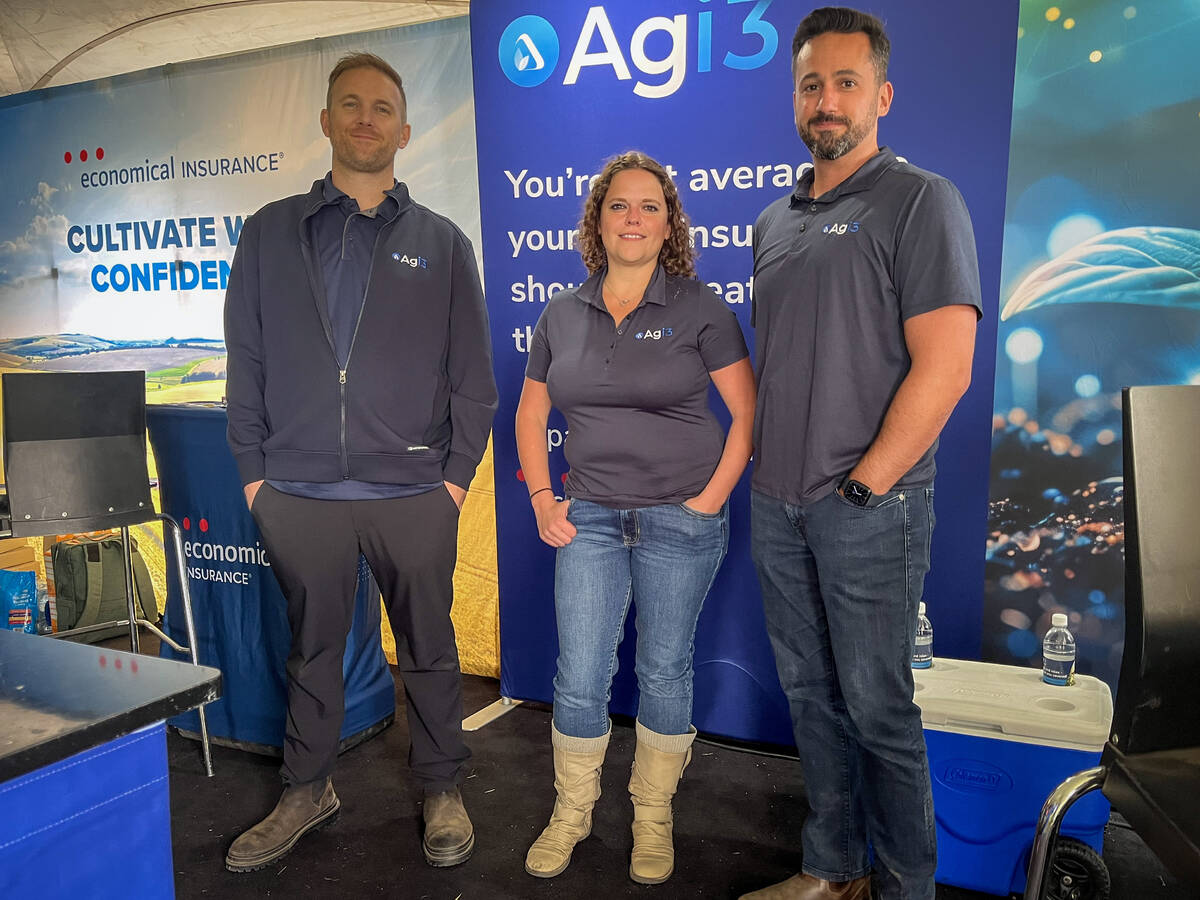Beekeepers won’t have new technology to fight varroa mites and associated viruses anytime soon because Monsanto’s RNA interference technology is years away from commercialization, a company spokesperson said.
Two years ago, Monsanto purchased Beeologics, an Israeli company specializing in RNA interference, which is a technique to shut down the expression of particular genes in an organism. Beeologics was using RNAi to protect bees from viruses spread by varroa mites, including Israeli acute paralysis virus.
Maureen Mazurek, Monsanto’s director of ag biologicals communications, said the company is focused on four categories of research related to biological technology:
Read Also

Agi3’s AI-powered individualized farm insurance products win innovation prize
Agi3’s AI-powered individualized farm insurance products won the business solutions prize in the Innovations Program Awards prior to the Agriculture in Motion farm show in Langham, Saskatchewan.
• insect control
• virus control
• bee health
Monsanto has branded its RNAi based tools as BioDirect, but it will take time to commercialize the technology, Mazurek said.
“What we anticipate, by the end of the decade, you should see some kind of product with BioDirect technology.”
Monsanto has made several public commitments to bees over the last year. The company recently invested in a new coalition to improve honeybee health at the Clinton Global Initiative.
Despite those public announcements, Monsanto will probably release other RNAi technologies before it introduces a product to combat bee viruses, said Leonard Foster, a University of British Columbia biochemistry professor.
Foster said investing millions of dollars in a novel technology for a relatively small industry such as bees doesn’t make sense.
“I’m not sure I can think of a single pest control product that has been developed specifically for bees,” said Foster, who heads up a team studying RNAi and bee viruses.
“To go through the whole process for a product that is first going to be introduced in bees is just not economic for any company.”
Foster and his team were working with Beeologics before Monsanto took over. At the time, the UBC researchers were planning to test Beeologics RNAi technology in the field to assess if it could effectively protect bee hives from viruses.
Foster said the subsequent collaboration with Monsanto came to a halt six months ago.
“The intellectual property they got when they bought Beeologics was not so much specific to bees.”
He said Beeologics had developed a process to scale up and reduce the cost of synthesizing double stranded RNA, which represents the commercial product in RNAi technology.
“They (Beeologics) were feeling that a beekeeper could probably treat a colony in the range of less than $20 per colony,” Foster said.
“To me, that was the real value in Beeologics. It had nothing to do with bees.”
Foster said Monsanto is probably still committed to bee health and developing RNAi technology for bees because the company hired Jerry Hayes, a respected bee industry leader, to lead its efforts.
“If they really were moving totally away from bees, there would be no reason to keep him (Hayes) around,” Foster said.
There is an opening for other companies to develop RNAi technology for bees if Monsanto is indeed pursuing more lucrative RNAi research, he added.
Hayes said the company is actively working on its bee health objectives and is collaborating with Canadian experts, such as Stephen Pernal of Agriculture Canada.
Hayes said Monsanto is developing protocols to test RNAi technology in bee colonies.
“This past year, that’s what we worked on, probably 75 percent of the time, is devising a robust field trial that would quantify what honeybee field health really is,” said Hayes, former chief of the apiary inspection for Florida’s agriculture department.
“Our field trials were based on developing this new … protocol so we can meet the robust standards of the government agencies (for registration).”
On the Beeologics website, Hayes said he’s excited to work with Monsanto to “bring non-chemical varroa control and the control of the varroa/virus complex to a suffering and challenged industry.”
Hayes said apiarists are eager to use RNAi technology to protect their bees.
“Chemicals in any system don’t work forever because the organism develops resistance,” he said.
“Putting pesticides in a honeybee colony is just crazy, so using nature’s system (RNAi) to increase immune systems is fantastic.”

















